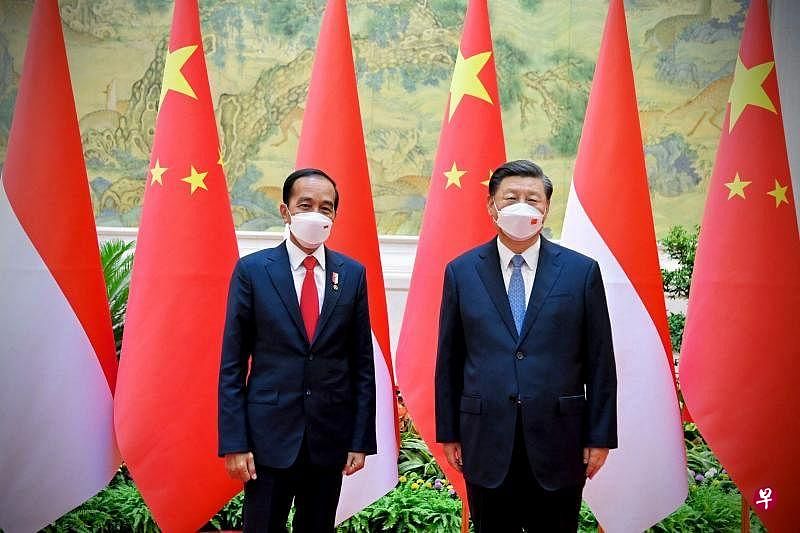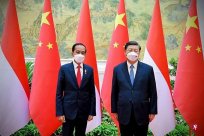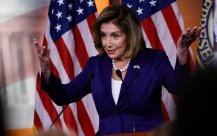
The more fierce competition between the big country, the unreasonable countries have become a popular target for China and the United States to scramble.Scholars analyzed that in recent years, the international hegemonic framework has been loosened. In the face of contradictions with allies, the United States has not solid relationships. Instead of unreasonable countries, it is more flexible, and its key influence on the regional situation has also increased day by day.
Non -all -all -all countries refer to nearly 120 member states that originated from a loose international organization during the Cold War. They pursue independent and independent foreign policies and do not associate with any of the two major powers of the United States and the Soviet Union.Because about two -thirds of the United Nations members are not all alliance countries, these countries have naturally become the targets of power to win, and are even more likely to compete in China and the United States.
Signs show that since May, China and the United States have continued to expand their interactions with Non -All -China and the Middle East.For example, US President Biden and Asians' leaders held a special summit and visited the Middle East; Chinese Foreign Minister Wang Yi also visited the above -mentioned region.The first foreign leader invited to visit China after the Olympic Games.
Cai Dongjie, a specially appointed professor of the Institute of International Political Research, Taiwan's Zhongxing University, was organized by an online seminar co -organized by the Association of Foreign Relations at the School of International Relations of Tamkang University on July 27.At present, the US hegemony framework has become more and more loose, which makes the international situation feel space, so it can feel that China and the United States are competing with the relationship with some countries.
But he also mentioned that although the existence of the country from the 1960s, he hopes to fight for the activity space under the US -Soviet confrontation framework. At present, it is only the space generated by the looseness of the US hegemony to create national interests.There is no confidence that the US hegemonic framework is influenced and created a new space to confront the United States, so it will adopt a "companion" strategy.
Therefore, for the interpretation of China and the United States from the perspective of the "New Cold War", Cai Dongjie believes that there are still some "too early."
He Kai, director of the Governance and Public Policy Center of the University of Griffis, Australia, said that in the inquiry of Southeast Asian countries, it became a popular national group for Sino -US countries, but the United States emphasized that "alliance" is to deal with common enemies; China emphasizes"Companion" is for common interests.Therefore, if Southeast Asian countries can maintain strategic independence and win greater initiative in the Sino -US game, it may further affect the system checks and balance between China and the United States in the future.
On the other hand, China and the United States have continued to use the multilateral organization summits such as the seven major industrial countries (G7) and the BRICS (BRICS) to strengthen the relationship between cooperation with existing cooperative countries, and at the same time propose to each other.However, China and the United States have also faced constraints in the internal cooperation of these multilateral organizations.
For example, in the G7 countries, the United States and other European members are different in response to the sorting of Russia and China.
Zhuo Zhonghong, director of the European Institute of the School of International Affairs of Tamkang University, pointed out that for Europe, Russia is the main threat, and China is the global challenger, competitors and opponents of the global system.The food crisis and trend of refugee caused by the Russian and Ukraine War will also allow European countries to focus more on Russia. China is not the primary consideration.
Cai Dongjie believes that "free democracy" has never been used to unite the G7, but to differentiate the G7 rival; and European countries leaders may not necessarily support the United States and not necessarily oppose it, but to shape them, but to shape them, but to shape them, they are to shape them.The "third party" perspective, strive for their own national interests.But after all, Europe and the United States have been tied together in the past few decades, and Europe really needs some time and resources to leave the United States.
Compared with the differences in the opinions of the G7 countries, Brics faces the shortcomings that lack internal cohesion.Among them, India, which walks between China and Russia and the Western camp, is a key role that has attracted much attention.
BRICS countries are gradually expanding to be regarded as g7 compete
Fang Tianci, a professor at the Tsinghua University General Center of Hsinchu Tsinghua University and the chairman of the Taiwan Indian Research Association, proposed that in the context of Russia and Ukraine's conflict, there were differences in India.Dependence and pay more attention to China's threat to India.
He believes that this causes India to adopt a "balance" role in the Quad or Brigs, and try to dilute the anti -American color of the BRICS country.
In addition, since the 2017 Xiamen Summit proposed the concept of "BRICS+", Iran and Argentina submitted to join the BRICS application in 2022. In addition, there are Egyptian, Nigeria, Sudan, Syrian, Pakistan and other countries.He also expressed interest in joining.This means that Brics is gradually expanding and is also regarded as a compete with G7.
But after the border conflict, India was worried that China tried to expand and dominate the transformation of Brigs into a geopolitical platform, and even worried that Pakistan might apply for joining.Therefore, Fang Tianci believes that the Declaration of the Beijing Summit emphasized that the expansion must be under the principles of "full negotiation" and "consensus foundation", and India's "dissidents" have a more critical role, which will expand the process of left and right BRICS countries.
For the difficulties and opportunities of Brics development, He Kai believes that except for the large threats between China and Russia facing the West and the United States, India, Brazil, and South Africa do not have a common threat, and the five countries of the BRICS are not obvious, trade in trade, tradeThe dependence is limited, and the economic cooperation is limited. Some countries have a particularly strong economic dependence on European and American western countries.
He believes that this will weaken the internal cohesion of Brigs and check the balance of the foreign system, making it difficult for Brics to upgrade to the international mechanism of the G7.
But He Kai also mentioned that if the European and American camps increase pressure on the BRICS five countries, Bright's cohesion will increase; if the BRICS five countries increase each other's interests and find out the growth point of common interests, it can also increase the cohesion.EssenceThis will be the two major opportunities for BRICS development.




